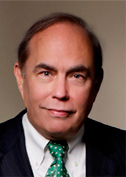© 2014 The Texas Lawbook.
By Mark Curriden and Natalie Posgate – DALLAS (January 31, 2014) – Opening statements Thursday in the billion-dollar legal battle between three oil and gas giants – Energy Transfer Partners, Enterprise Products and Enbridge – at times resembled a nasty, bitter divorce caused by lovers’ triangle.
“We were cheated on,” said Dallas trial lawyer Mike Lynn, who is representing ETP in the case that accuses Enterprise of ending their partnership in a pipeline project in order to start another relationship with Enbridge.
“This was intentional betrayal by Enterprise,” Lynn told the seven-woman, five-man jury selected to decide the case. “This was coldblooded. They kicked us out like we were dogs.”

David Beck, the lead lawyer for Enterprise, countered that the evidence would show that there was no cheating because ETP and Enterprise were never in a committed relationship from the start.
“Both parties wanted no exclusivity,” Beck told jurors. “They’re trying to create a partnership through ambush.”
Enbridge’s lead lawyer, Michael Steinberg, stuck with the theme when he addressed the jury.
“It’s not a marriage,” he said. “They will never love each other.”
Even emails between Enterprise’s Chief Operating Officer Jim Teague and the company’s CEO, Mike Creel, played into the storyline, too.
“[Enterprise Vice President] Bart Moore said his breakups with psycho girlfriends was easier than this,” Teague wrote to Creel.
“Maybe Bart’s psycho girlfriends weren’t as wacko!” Creel responded.
At the heart of the dispute is whether ETP and Enterprise legally formed a partnership in 2011 when the two energy corporations tried to form a pipeline that would transport oil from Cushing, Okla. to Houston.
Lawyers for the three energy companies used half their four hours of opening statements Thursday educating the jury about oil and gas industry and the world of pipelines, and the other half painting each other as cheating money grubbers.
Lynn, a partner at Lynn Tillotson Pinker & Cox, told jurors there are about 90 internal memos, emails and corporate public statements by Enterprise executives that demonstrate that Enterprise officials believed they had a joint venture with ETP.
For example, a press release issued by the two companies on April 26, 2011 has a headline stating, “Enterprise and Energy Transfer to Form Joint Venture.” The release states that the two companies “announced they have formed a 50/50 joint venture” and quoted Enterprise CEO that he is “very pleased to partner with” ETP.
Lynn showed jurors internal Enterprise memos and marketing materials from May and June 2011 describing the effort as a partnership.
“Enterprise told everybody that we were partners,” Lynn told jurors. “They said it to us. They said it to customers. They said it to investors. They told the whole world.”
ETP suffered damages ranging between $594 million and $1.3 billion, Lynn said, adding that he also planned to ask jurors to award punitive damages.
“We have to prove three things,” Lynn told jurors. “We have to prove that Enterprise and ETP created a partnership, that Enterprise stole the partnership opportunity from ETP with Enbridge’s help and that ETP suffered substantial harm.”
Not so fast, says Beck, who represents Enterprise. Beck said there are 17 separate internal ETP emails written by executives admitting there was no partnership.

“You will not see any partnership agreements because there were none,” Beck told jurors. “There wasn’t a partnership and they knew it. Neither party wanted exclusivity. Even ETP’s own documents refute the claims they are making today.”
Beck points to an April 21, 2011 letter of agreement that uses terms such as “non-binding” and “proposed joint venture” and a separate reimbursement agreement signed six days later stating that “nothing herein shall be deemed to create or constitute a joint venture, a partnership.”
He showed jurors a May 20, 2011 internal ETP memo stating that the company was “awaiting JV formation” and an Aug. 1, 2011 email from ETP Senior Vice President Lee Hanse calling Enterprise a “potential partner.”
“On Aug. 8, ETP deleted the Double E project from its regulatory submission documents,” Beck said. “In ETP’s mind, this project was dead.”
Beck flashed an Aug. 19, 2011 internal ETP memo on the screen for jurors.
“Earlier this year, Enterprise and Energy Transfer Partners agreed to work toward establishing a partnership in order to jointly develop and construct a crude oil pipeline from Cushing to Houston,” the memo read. “Within the past week, after further negotiations, the parties verbally agreed that the proposed project would not be viable and that the parties would not move forward with the project due to a lack of economic justification.”
Beck told jurors that ETP’s out of pocket expenses were only $35,000, while Enterprise’s expenses were $1.7 million.
“This project failed for a very good reason: they couldn’t get enough shippers,” Beck told jurors. “They want you to award hundreds of millions of dollars for a project for which they contributed nothing.”
The first witness in the trial, ETP President and Chief Operating Officer Marshall “Mackie” McCrea, told jurors about being contacted by Enterprise COO Jim Teague, who set up a meeting in Houston on March 31, 2011 to discuss a possible partnership.
McCrea testified that Enterprise officials had the idea of using ETP’s existing Old Ocean Pipeline, which runs from Houston to Dallas, as part of a bigger project to move oil from Cushing to Houston.
He told jurors that Teague and others at Enterprise estimated they could move about 420,000 barrels of oil a day through the pipeline at an estimated annual revenue of $462.9 million. They called the new project Double E.
“It was very exciting,” McCrea testified. “The reason we were so excited about this partnership was that in the pipeline business, it is so important to be the first. Speed to market. It gave us a significant advantage.”
McCrea says ETP and Enterprise signed the April 21 letter of intent but that the relationship almost immediately evolved.
“We quickly moved away from that agreement and toward a full partnership,” he testified. “We were conducting ourselves as partners. It was important for us and Enterprise that we make it clear to our customers that we were a partnership.”
McCrea will return to the witness stand when the trial resumes Monday.
© 2014 The Texas Lawbook. Content of The Texas Lawbook is controlled and protected by specific licensing agreements with our subscribers and under federal copyright laws. Any distribution of this content without the consent of The Texas Lawbook is prohibited.
If you see any inaccuracy in any article in The Texas Lawbook, please contact us. Our goal is content that is 100% true and accurate. Thank you.
